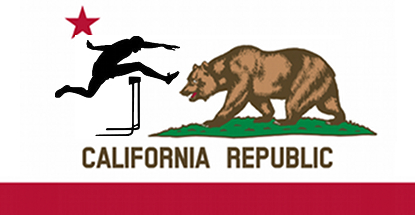 California’s online poker ‘shell’ bill survived another committee vote on Thursday despite the apparent abstention of its Republican members.
California’s online poker ‘shell’ bill survived another committee vote on Thursday despite the apparent abstention of its Republican members.
Assemblyman Adam Gray’s AB 431 bill made history last month by garnering the approval of the Governmental Organization Committee. On Thursday, the bill – which contains no details and thus serves purely as a vehicle to keep the online poker conversation going in the legislature – was released by the Assembly’s Appropriations Committee.
GamblingCompliance scribe Chris Krafcik (@cKrafcik) reported that the Committee’s five GOP members had deigned not to vote one way or the other, while the 12 Democrats had unanimously voted in favor. The day before, Krafcik had reported that AB 431 wouldn’t make an appearance on the Assembly floor until after the next round of public hearings scheduled for June 24 and July 8 with the Governmental Organization Committee.
While the hearings might offer further insights, recent public statements underscore the chasm that exists between online poker stakeholders. Before Thursday’s vote, the so-called Pechanga coalition, which has now grown to nine federally recognized California tribes, wrote to Committee chairman Jimmy Gomez, saying “the issues that divide stakeholders remain unresolved.” While the coalition claimed to be interested it resolving these differences, it also wondered “if indeed that is possible.”
The Pechanga letter said the coalition had only shifted its position to “neutral” on AB 431 last month “out of respect for Chairman Gray’s leadership and the prior assurance that consensus would be sought before moving forward.” The letter went on to warn that “moving the bill at this time would be directly counterproductive to any internet poker effort.”
The Pechanga coalition’s key objections are twofold. It doesn’t want to allow ‘bad actors’ like PokerStars, which did business with US residents post-passage of the 2006 Unlawful Internet Gambling Enforcement Act (UIGEA), to participate in California’s regulated online poker market (regardless of Stars’ new ownership). The coalition also vehemently objects to participation by the state’s racetracks, which currently offer online advance deposit wagering but have no historical ties to poker.
Meanwhile, PokerStars’ local partners – the Morongo and San Manuel tribes, plus three state cardrooms – celebrated Thursday’s vote as “another step forward” to passage of an online poker bill in 2015. The Stars coalition acknowledged that there was “much left to do to draft bill language” that everyone can support, but it is “committed to resolving the remaining issues. We hope others are as well.”
